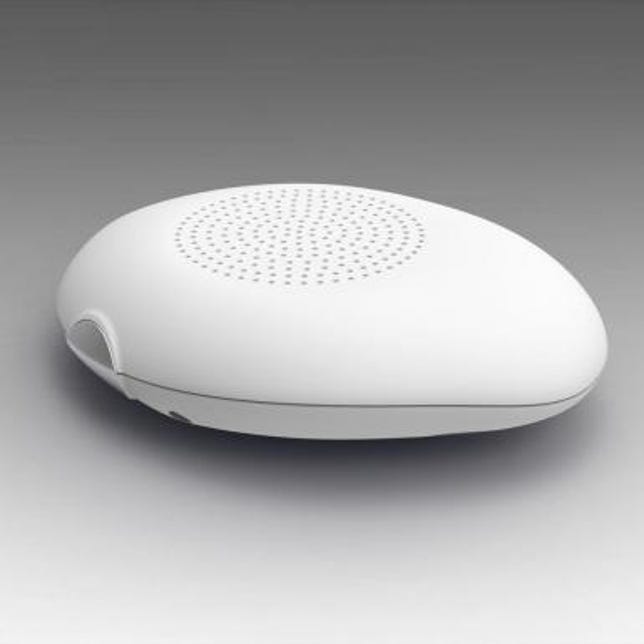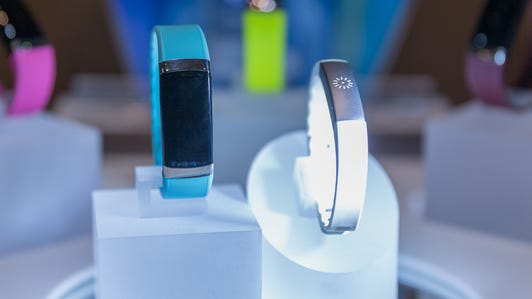
Biobeats
The co-founder of a biometric startup backed by Will Smith has warned of the potentially “sinister” and “Orwellian” dark side of wearable and connected technology.
David Plans is a founder of BioBeats, a company that builds apps and devices that sync your music to your heartbeat. Investors include Justin Bieber’s manager Scooter Braun and the Fresh Prince himself Will Smith, with Deepak Chopra also involved as an advisor.
Speaking at the Nimbus Ninety Ignite Conference in London on Wednesday, Plans described how he went from making the Pulse app as “a gimmick” for tech festival South by Southwest (SXSW) 2013 to a new device being trialled in UK hospitals: the Breathing Stone. Co-developed by the University of Bath, the Breathing Stone is a handheld medical device that records your heart rate and breathing and generates music to ease anxiety. Plans describes how the Breathing Stone emulates the benefits of a smartphone in a medical environment, because “you can’t take a phone in a children’s ward and you can’t give a phone to someone in an ambulance.”
The potential advantages of medical devices are exciting both for patients and for healthcare providers: Plans envisages that, “if you know a nonagenarian is going to have stroke in two weeks you can deal with that without hospitalising them; and hospitalising them costs the National Health Service a huge amount of money.”
These are the smart health and fitness products of the future (pictures)






Where next for wearables and connected devices?
- Wearables at war: How smart textiles are lightening the load for soldiers
- Wearable gadgets for the whole body
- Google X chief admits that ‘wearables are tough’
- The trick for wearables’ success is all in the wristwear
- F-35 strike fighter helmets: The ultimate in advanced HUD wearables
But with these exciting potential advances come other possible uses. Plans worries some organisations are more interested in using wearables and the data they collect for “sinister purposes”. In a twist he describes as “Orwellian”, he claims that “some of the insurance providers we work with want to calculate insurance premiums in real-time,” which he sees as problematic.
Howver, Plans notes that “while some of the aspects of biometric data gathering from wearables may at first seem surveillance-like and therefore Orwellian in nature, they offer very clear and potentially life-saving advantages to human life and the provision of care. This means that whilst we have a lot of work to do to ensure privacy, security and choice for people and their data, we also have a tremendous amount of potential health benefit to deliver.”
And wearables are not just for patients, says Plans, as they could also be used to monitor and protect caregivers and other workers. Plans suggests a wearable device that monitors health and tiredness could answer questions like, “Should this nurse be on duty? Should this paramedic be in this ambulance? Are they too fatigued?
“Is this solder able to judge whether that child who may be carrying a bomb should be shot?” he continues. “This kind of decision-making happens a lot, especially in the Israeli army, who have some very interesting opinions about what should go in a biometric helmet.”
Plans did not go into detail on what those interesting opinions might be. But wearable technology is an area of huge interest to the military across the globe in an age of high-tech warfare where troops go through more batteries than bullets. The US and UK military, for example, have worked on wearable systems festooned with high-tech kit such as BAE’s Broadsword system or the Nett Warrior system, which integrates a Samsung Galaxy Note 2 smartphone.
At the time of writing the Israeli Defence Force did not respond to a request for comment.


Now playing:
Watch this:
Wearable tech that helps keep you safe
1:03



